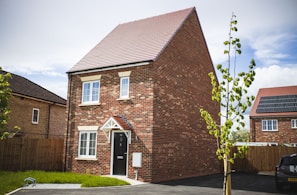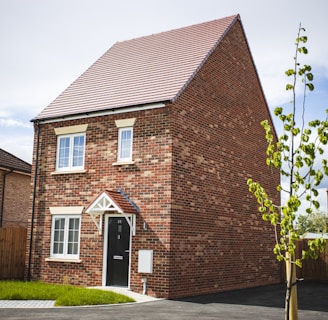Finding a place to stay in the UK
Finding a place to stay in the UK is a daunting task than you can imagine, especially if you are a newcomer to the UK and does not know which places to stay and search for.
This guide aims in giving a general overview of houses you get in the UK and how can one find a place to rent in the UK when they first travel here.
The first thing is to figure out the locality where you need to stay by evaluating your priorities.
If you have come here to work or study, it is recommended to find a place which is only at a walkable distance to your office or university, or a place with good transportation links. London has a great and affordable public transport network, while in other places outside London, you would most probably need a car.
If outside of London, you most probably would need to get a car, and can search for cheaper areas to rent and consider driving an option.
Below are the websites you can use for your search in the UK :
Spareroom : Best for searching indvidual rooms or sharing with flatmates.
Also you can check out the following websites if you need short term accommodations in hotels, AirBnBs or lodges :


Different house types in the UK :
1. Detached
This is a standalone house with no walls being shared by a neighbour. Most expensive out of the lot because you would have no wall sharing with your neighbours which can cause noise issues.




3. Terraced
Joint houses where both sides of the house would have other households sharing both walls of the house. An end-of-terrace house is at the end of the housing units and shares wall with only 1 neighbour.
2. Semi-detached
Two houses as a single unit where each neighbour shares a single partitioning wall with the other. Most common type of houses in the UK with a single neighbour sharing the wall seperating the houses.
Energy Ratings
Every house in the UK has an energy rating associated with it which is an indicator of how much energy efficient the house it is. You can check in this official website (https://www.gov.uk/find-energy-certificate) to find the EPC rating of a house you are interested in.
A better EPC rated house can help you save a lot of money during the winters.


The above chart gives a general idea on the EPC ratings in the UK. You can visit this website to know more about EPC ratings.
Council Tax
This is an additional expense associated with a house in the UK. This is the amount you would pay to your local council for maintaining the streets, roads, and goes to the facilities provided by your council. This amount would different based on the council and house type you are in.
Once you have found a home you are interested in, check the council tax band your house is in. The council tax band ranges from A to H where A is the lowest charged band and H is the highest charged band.
Check with your agent/landlord to find out the amount of council tax which has to be paid. Most of the council tax payment can be setup monthly, quarterly, half-yearly or yearly.
You would need to contact the council to set up the payments after you have moved in to the property. Students need not pay council tax on a property.
Check with your agent/landlord to find out the amount of council tax which has to be paid.
Other things to check for:
Schools in your house's catchment area. This data would be most likely available in your county's or council's website.
Crime statistics in your location : https://www.police.uk/pu/your-area/
Shops and public transport facilities available.
Parking spaces available (Garage or parking on street).
After you've found your house...
Contact the agent to arrange a viewing for the house you are interested in. If you are contacting from outside the UK or cannot make it to the place in person for any reasons, most agents would help arrange a virtual viewing for you.
Once you liked the house, you can ask the questions you have, and would need to pay a holding deposit for reserving the property which is non-refundable if you change your mind later and proceed with another house you liked more. Else this amount would be deducted from the deposit you are supposed to pay which you would be paying just before you move in to the house along with the first rent payment.
Also ask about break clauses if needed, where you are allowed to move out of a house in midst of a contract, in exchange of an agreed amount. This would help in case if you need to upgrade your house before the current contract period ends.
Some agents/landlords might ask for a guarantor who is someone who promises to pay your rent for the contract period in case you are unable to pay, or decides to break contract. If you are employed, agents most likely do not ask for one and instead ask for alternatives like supplying a letter from your employer as an assurance that you would be able to pay rent, instead of having a guarantor.
When you move in...
So the day has come where you move in to the house. Ensure you do these on the time of move in to the house.
Collect the keys and ensure you have all the set of keys you would need (to the garage, store room/boiler room, post box, gas and electricity meters, etc.) and the permits available (parking permits in case of flats/apartments). Ask the agent questions on how to take meter readings and what kind of energy supply you have (prepayment meter, smart meter, etc) and which providers are currently supplying to the property.
Also, examine the property and take photos and videos of the property of every nook and corner you can. In case you find any issues with the house, talk with your agent/landlord to get those fixed. Also, safely store these videos and photos for proof in case of any disputes with deposit when you move out of the property.
Take photos of your meter readings and contact the energy suppliers you are interested in to switch your supplies. Octopus Energy, British Gas, Scottish Power, EON, etc are few energy suppliers in case you are unfamiliar with those in the UK.
